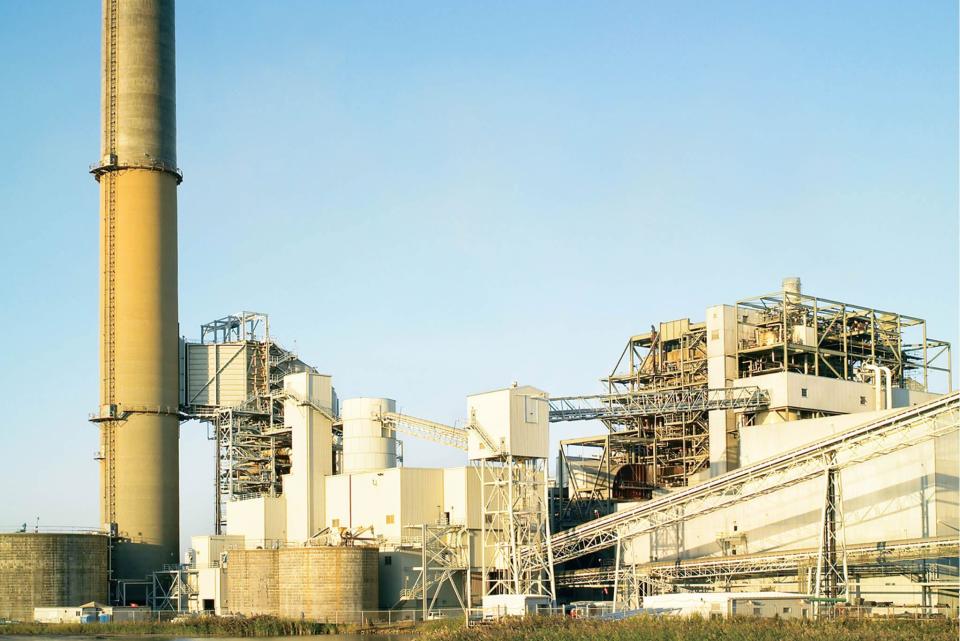CenterPoint customers to see higher bills after Indiana OKs building two new gas plants
Homeowners in southern Indiana will see their electricity bills rise, again, in the coming years after the state approved a utility’s request to build a new power plant — one the utility says will rarely operate.
The Indiana Utility Regulatory Commission on Tuesday gave the thumbs up to CenterPoint Energy to build two new natural gas combustion turbines in place of one of its former coal plants. The approval also means that the utility can ask to increase rates so customers are left covering the cost.
Consumer advocates that pushed fordenial of the project said they are disheartened and frustrated by the IURC’s blessing.
“This outrageous decision approves unneeded and expensive fossil gas power plants that will significantly raise the cost of electricity for CenterPoint customers,” said Kerwin Olson, executive director of the Citizens Action Coalition.
How much will it cost CenterPoint Energy customers?
The project is estimated to cost $334 million in total, according to the IURC release. That could mean a $23 per month increase to the bill of a homeowner who uses 1,000-kilowatt-hours of electricity, according to testimony CenterPoint filed as part of its proposal last year.

That total cost, however, is already reflects $10 million increase from when it was originally proposed, given costs of materials and inflation. Advocates say they worry that those costs will continue to creep up as the build begins.
That said, in a statement released yesterday, Texas-based CenterPoint claimed customers will see bill increases of only less than $10 per month. They said the original $23 figure was based on the cost of the turbines on their own, and it did not take into account the savings from “securitization and other bill reductions.” Securitization is the process of pooling certain assets so they can be repackaged and sold to free up some capital.
Regardless, the regulatory commission said that rates will not change before another rate case and the gas units are in service.
Renewable energy: Solar power is about to become a lot more expensive for Hoosiers as net metering expires
CenterPoint already has the overall highest residential rates of the five investor-owned utilities while serving the smallest customer base of 140,000 ratepayers.
New gas pipeline plans
The two new gas turbines are not the only potential bill hike customers will see. In addition to the units, CenterPoint also wants to build a new pipeline to get the natural gas fuel to the plant.
The pipeline would be built by a company called Texas Gas Transmission and would run about 24 miles from Kentucky underneath the Ohio River to the plants that are just southwest of Evansville. CenterPoint’s new plants would be the sole purpose of building the pipeline, according to officials.
The pipeline will cost $27 million annually over a period of 20 years, according to testimony from the company, which comes out to $540 million. The utility would look to pass those costs on to customers through fuel charges, the testimony shows.
In total, that’s around $870 million, or more, for both the plants and the pipeline. And that doesn’t even include the cost of fuel to actually run the facilities.
The plants and the pipeline have been before two different regulatory agencies. While CenterPoint’s request for the gas turbines were being considered by the IURC, the pipeline proposal is before the Federal Energy Regulatory Commission.
Both requests were submitted during the summer of 2021. It is unclear at this time when a decision can be expected on the pipeline, a FERC spokeswoman told Indystar.
The pipeline’s pending status does not seem to be slowing CenterPoint’s plans, however. It has said that construction will start immediately and they hope to have the turbines running in 2024.
If FERC were to deny the pipeline, the utility previously told IndyStar that they would “have to go back and rethink the set of solutions” on how to get the natural gas onsite.
In its order, the IURC essentially asked CenterPoint to spend as little as possible before FERC approves the pipeline.
Olson said he finds that idea “ridiculous.”
“That’s like giving a bunch of first-graders a bucket full of candy and telling them, ‘now children, only take one,’ and then leaving them alone with the bucket,” he said. He worries that the IURC’s approval makes approval of the pipeline more likely.
PFAS: Firefighting foam is toxic. Indiana launches new program to safely get rid of it.
Customers, CenterPoint's response to costly plans
There were multiple intervenors in this case and more than 2,000 pages of public comment — made both in person and written submissions — asked that the project not go forward. Many said their bills are already so high and they are desperate for relief.
A statement from Energy for All — a coalition of community, environmental and consumer groups that formed in response to the hardship of CenterPoint customers — said this decision will have “terrible consequences” for the community.
“These gas plants are too expensive and not needed, and will commit overburdened CenterPoint customers to paying nearly a billion dollars for decades to come,” the group’s statement said. “It’s outrageous that we should pay that much for plants CenterPoint admits will almost never run.”
CenterPoint officials said that this plant is necessary to help with the utility’s transition away from coal and to renewable energy.

The utility has announced plans in Indiana to retire roughly 700 megawatts of coal power and move toward more than 300 megawatts of wind generation and as much as 1,000 megawatts of solar and battery storage. But to support those efforts, the utility said it also wants to build the two new gas units that would provide about 460 megawatts of capacity.
CenterPoint said that the retirement of many of its coal-fired units will reduce carbon emissions by over 80% across its electrical footprint. It also added that the gas plants maintain the utility’s commitment to clean energy.
The plants will be built on the site of the utility’s A.B. Brown coal plant. Using this site will save customers money and continue to generate tax revenue for the area, the company said.
Scrub Hub: Are lightning bugs disappearing from Indiana's night skies?
The gas plants are meant to serve as peakers, meaning they won’t run all the time. Rather, they will run during times of peak demand or when the renewables aren’t providing enough power. The gas turbines would only be used 2% to 10% of the time, a company spokesman has told IndyStar.
The IURC’s order said that the “flexible and controllable nature” of the gas turbines “will support the intermittent nature of the renewable generation” in the CenterPoint’s future portfolio and help “ensure system reliability.” The commission further added that it believes moving forward on the gas units “is the best economic decision” for CenterPoint’s customers.
The regulators did not feel the same, however, about a previous CenterPoint proposal.
In 2018, then-Vectren submitted a petition to build a single 850-megawatt gas plant that would cost around $800 million.

Various advocacy groups, including the state’s consumer protection agency, recommended denying the plant because it had not fully evaluated all viable options to meet customers needs. In 2019, that’s what the IURC did unanimously.
In the order it issued, the IURC said “The proposed large scale single resource investment for a utility of Vectren South’s size does not present an outcome which reasonably minimizes the potential risk that customers could sometime in the future be saddled with an uneconomic investment.”
Advocacy groups said they feel Tuesday’s decision is still “saddling” customers with an uneconomic investment. The state is in the middle of a utility affordability crisis and the country in the middle of a climate crisis, they said, which is not the time to be building more fossil fuel plants.
The region’s grid operator has predicted a potential slight shortfall in supply this summer and that rolling blackouts could happen, though it’s very unlikely. Environmental and consumer groups suggest looking to other tools such as energy efficiency and different rate structures to help meet the demand.
They also are renewing their call for the governor and state legislature to establish a Utility Affordability Task Force to help protect customers.
Call IndyStar reporter Sarah Bowman at 317-444-6129 or email at sarah.bowman@indystar.com. Follow her on Twitter and Facebook: @IndyStarSarah. Connect with IndyStar’s environmental reporters: Join The Scrub on Facebook.
IndyStar's environmental reporting project is made possible through the generous support of the nonprofit Nina Mason Pulliam Charitable Trust.
This article originally appeared on Indianapolis Star: Anderson utilities: CenterPoint energy Indiana customers bills to rise

